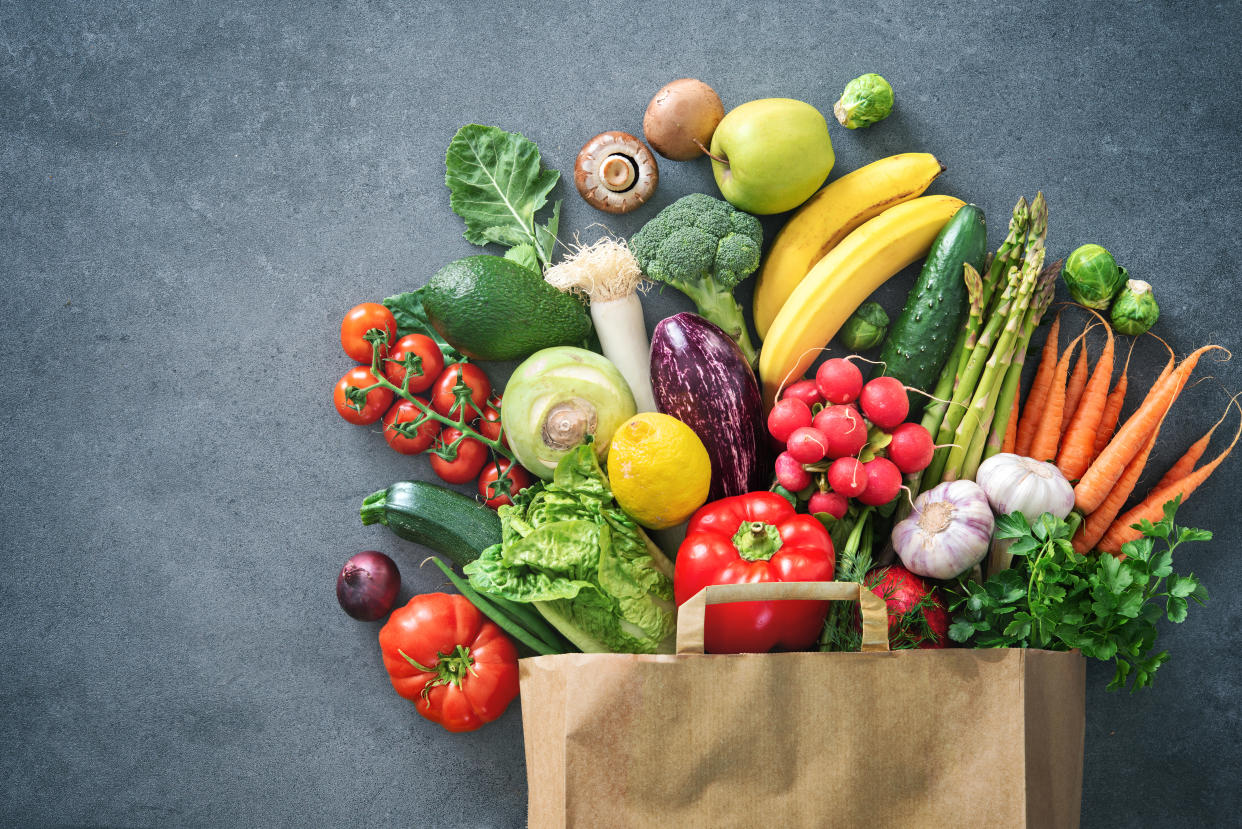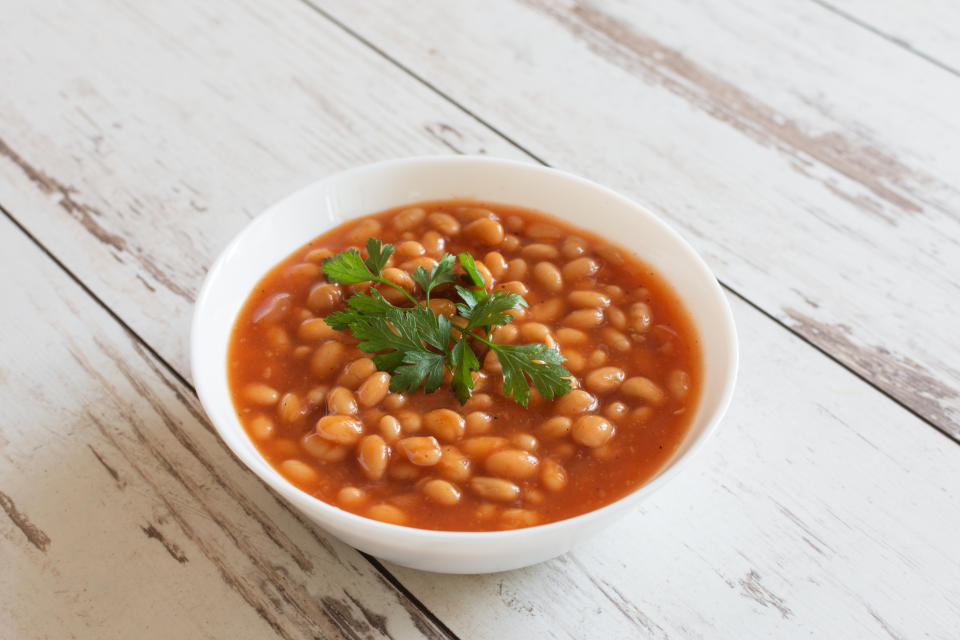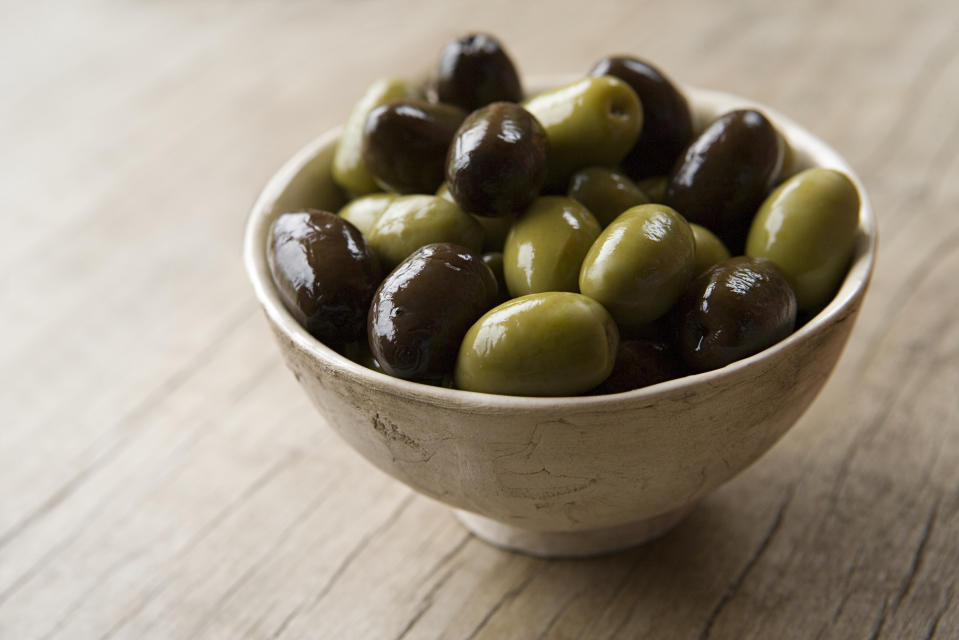5 foods you didn’t know are 1 of your 5-a-day

Health officials urge Brits to eat at least five portions of fruit and vegetables every day.
Since the “five-a-day” concept was thought up in 2003, it has been both praised as an achievable target to get the nation healthier and criticised for not going far enough.
Scientists from Imperial College London suggested a higher bar of seven portions of produce may be optimal for good health.
Read more: Cheap, easy ways to get your five-a-day
“Whether it’s five or seven, the overarching message still remains the same in that we should all be including plenty of fruits and vegetables in our diet,” Rob Hobson, registered nutritionist at Healthspan, told Yahoo UK.
Eighty grams of fresh, canned or frozen produce count, as well as 30g of dried fruit.
While the options are plentiful, less than a third (28%) of adults in England hit the target in 2018, with most managing just 3.7 portions a day.
Many people assume they have to force down a limp salad or steamed greens to get their five-a-day, unaware of the goodness hidden in their favourite “treats”.
Five little-known sources of your ‘five-a-day’
Baked beans
Whether they are piled on toast or a baked potato, baked beans make for a comforting winter meal – or hungover breakfast.
“Beans are plant-based foods that offer high amounts of protein, fibre and minerals to the diet,” said Hobson.
The NHS says pulses like beans only count as one portion of your five-a-day, regardless of how many varieties you consume, “because they contain fewer nutrients than other fruits and vegetables”.
Nonetheless, the benefits of baked beans should not be overlooked.
“You could say not all servings of fruits and vegetables are created equally, and obviously a plate of kale offers more nutrition than beans on toast, but not everyone likes kale,” said Hobson.
Baked beans can be high in sugar, however, with a 100g Heinz serving containing 4.7g of the sweet stuff.
Read more: The easiest fruit and vegetables to plant in your garden
The government recommends adults consume no more than 30g of “free sugar” – sugar added to food and drinks, plus that found naturally in honey, maple syrup and juice – a day, roughly seven sugar cubes.
“All of the sweetness in this product comes from the addition of cane sugar and the resultant sugar from the breakdown of the tomatoes used to make the sauce,” Hobson previously told Yahoo UK.
A no-added sugar version has 1.9g of the sweet stuff, which comes from the tomatoes in the sauce and a little of the natural alternative stevia.
For those not keen on baked beans, pulses in general are a good addition to your diet.
“Bulk up chilli, stews and sauces by adding any type of bean to the dish, not only do they provide fibre and act as a cost-effective bulk. but they all count towards your five-a-day,” Rosie Long, registered associate nutritionist, told Yahoo UK.

Canned tomato soup
A steaming bowl of soup can be just what the doctor ordered during cold and flu season.
Tomatoes are packed with vitamins A, C and E, which help keep everything from your heart to your eyes healthy.
Like baked beans, however, canned soup can be high in sugar.
With a can of Heinz Cream of Tomato Soup serving two people, each portion contains 9.7g of sugar.
“Like baked beans, you should try and opt for a lower salt and sugar alternative,” said Hobson.
Heniz’s “no added sugar” alternative contains 5.3g of “naturally occurring sugars” per half can.
Marinated olives
Olives make an exotic addition to a salad, or perhaps a martini.
Technically a fruit, the bitter-tasting snack tends to be cured or packaged in brine.
Adults are advised to have no more than 6g of salt, around one teaspoon, a day.
Too much raises blood pressure, leaving people at risk of heart disease and stroke.
“A serving of olives can be classed as one of your five-a-day but there are questions to be raised as to the amount of salt you consume in the process,” Hobson said.
“An 80g serving could have you consuming as much as 3g of salt (50% of your recommended intake) so keep this to one daily serving.”

Juice
The NHS recommends people limit their juice and smoothie intake, even if made with vegetables, to 150ml a day.
“Even though fruit and vegetable juices can contain valuable nutrients (including vitamin C, A and folic acid) and also phytonutrients (including beta carotene and lycopene), they are still high in sugar,” said Hobson.
“The process of crushing and juicing releases the sugar from the fruits and vegetables, which are then free to damage teeth and also impact on blood sugar levels if drunk between meals.”
The 150ml “cap” applies to all juice, even fruit or vegetable varieties.
Read more: The 10 most polluted fruit and vegetables
“If you end up drinking double that, or orange juice in the morning and apple juice in the evening, it will still only count as one portion,” said Long.
When drank in moderation, however, the pros could outweigh the cons.
“As one of your five-a-day, fruit juice is still healthy, and provides a source of vitamin C and folate,” said Hobson.
The nutritionist urges people not to be taken in by soft drinks boasting the “five-a-day” label.
“Remarkably there are soft drinks such as Appletiser which are classed as one of your five-a-day even when they offer little more than a dose of sugar off the back of the fact they stem from a fruit,” he said.
Hummus
Hummus and other plant-based dips like baba ganoush are “well worth their five-a-day badge of honour”.
Watch out for the salt content in shop bought varieties and avoid serving with crisps to reap the benefits.
“Serving with chopped vegetables adds another serving to your daily quota,” said Hobson.
“Dips may not be your best vegetable option if you’re going to team them with crisps or some other salty savoury snack such as cheese sticks.”



